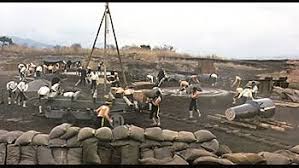The Jacobins: Architects of Revolutionary Thought

Introduction: The Jacobins and Their Significance
The Jacobins were a pivotal political group during the French Revolution, fundamentally reshaping France’s social and political landscape. Their commitment to the principles of liberty, equality, and fraternity established a framework that continues to influence modern democratic thought. Understanding the Jacobins is essential for grasping the revolutionary changes that occurred in France from 1789 onwards, and their legacy in contemporary political discussions.
The Rise of the Jacobins
Emerging in the late 18th century, the Jacobins were originally a club of radical political thinkers formed in 1789. They gained significant traction in the National Assembly, advocating for the rights of the common citizen and calling for an end to the monarchy. The group’s name derives from their meeting place in the former Jacobin monastery of Saint-Jacques in Paris.
The leadership of the Jacobins, particularly figures like Maximilien Robespierre, led to the group gaining power during the most tumultuous periods of the Revolution. By 1793, they had become the dominant force in French politics, supporting measures that ranged from the establishment of the First French Republic to the implementation of radical economic reforms aimed at combating poverty.
Major Events and Policies
One of the defining moments for the Jacobins was the enactment of the Reign of Terror (1793-1794), spearheaded by Robespierre. This period was marked by widespread purges against perceived enemies of the revolution, leading to thousands of executions by guillotine. While this was aimed at safeguarding the revolution from counter-revolutionary forces, it left a complex and often controversial legacy regarding civil liberties and state power.
Additionally, the Jacobins were instrumental in the establishment of the revolutionary principles enshrined in the 1793 Constitution, which promised universal male suffrage and social rights, although these ambitions were often stymied by political realities. The conflict with other revolutionary factions, particularly the Girondins, highlighted the internal strife that characterized this passionate era.
Conclusion: The Legacy of the Jacobins
The Jacobins’ impact was profound and multifaceted. Although they fell from power after the Thermidorian Reaction in 1794, their ideas continued to resonate throughout history, influencing various movements advocating for social justice, republicanism, and radical political reform. Present-day discussions about Jacobinism often reflect debates about democracy, state authority, and the balance between liberty and security. Understanding the Jacobins helps illuminate these enduring questions relevant to modern society.









